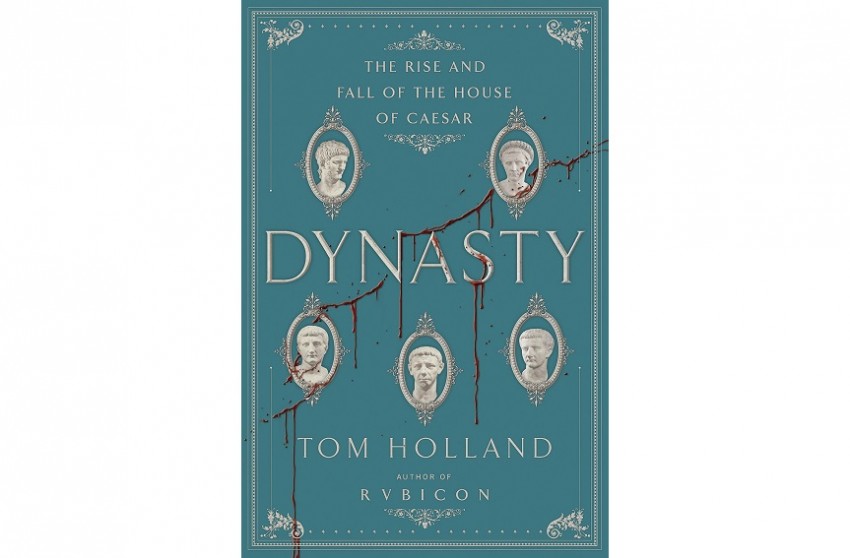Review: Dynasty, the Rise and Fall of the House of Caesar

The downfall of the Roman Republic, and the dynasty of four emperors that followed the death of the self–styled Dictator, Julius Caesar, has long enthralled modern audiences whether in books or television series such as I, Claudius and it still weaves its spell.
Here are a recently published history and a novel, both on that period and coincidentally both are sequels. Neither will be condemned for re–telling stories too well worn. Nor should they be. If you enjoy narrative history well leavened with cogent analysis, then Tom Holland is your man. He has already written several books relating to the Ancient World, among them Persian Fire on the vast Persian Empire and the Greeks who halted its westward advance; The Shadow of the Sword on the extraordinary Arab expansion inspired by Mahomet. Most relevant here is his splendid Rubicon: the Triumph and Tragedy of the Roman Republic to which Dynasty is the sequel. It is a worthy successor. It proves a gripping story but is difficult history to research. Holland, like others before him, relies on the Annals of Tacitus (55–120AD), an historian he greatly admires. Tacitus was, he observes, immeasurably superior “as a pathologist of autocracy – perhaps the greatest there has ever been” – to Suetonius (c75-160) who is more widely read. However, Tacitus always recognised the lack of reliable sources. All important government business was transacted in the secrecy of the Emperor’s palace, not publicly as under the Republic. Contemporary histories of Tiberius, Caligula and Nero, Tacitus complained, were all falsified “out of dread” while they lived and after their deaths “were composed under the influence of still festering hatreds.” A tough call then but Holland’s account of the reigns of Augustus, Tiberius, Caligula, Claudius and Nero is gripping and persuasive. He repeats the terrible allegations although at times suitably tinged with scepticism. However, he would approve of Seneca’s judgment that Caligula demonstrates “how far unlimited vice can go when combined with limitless power”. One odd revelation was that Nero’s popularity with the Roman plebs survived his suicide. As with Elvis more recently, they could never accept that he was really dead, and even years later reports of sightings would galvanise the Roman mob. If you want not just to learn about the age of Rome but actually feel as if you lived during it turn to Robert Harris’s Dictator. The dictator is Julius Caesar, but the protagonist is Cicero. This is the second volume Harris has devoted to the career of that statesman, orator, author, trial lawyer, wit, gossip, and above all senator, who survived astonishingly long through the downfall of the Republic to which he was devoted, the murder of the Dictator, and the horrors of civil war and the politics of violence that followed. He was an elderly man by the time Antony’s thugs came after him. The story’s narrator is Tiro, his secretary amanuensis, a family slave freed during the story, who really lived and wrote Cicero’s biography although it has not survived. We have, however, bits of his private shorthand system and still use it: The symbols &, and abbreviations NB, i.e., e.g. St Jerome (who gave later ages the Bible in Latin) claimed Tiro lived to be 100 years old. Good for him. You’ll grow to love him! Authors: Tom Holland (Dynasty), Robert Harris (Dictator) Publishers: Little, Brown (Dynasty), Hutchinson (Dictator)